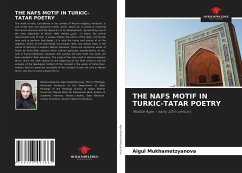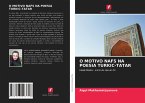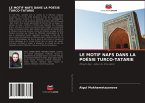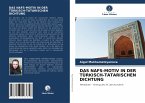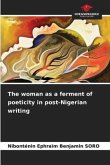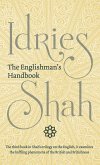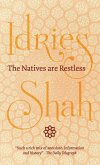The motif of nafs, considered in the context of Muslim-religious literature, is one of the main and operative motifs, which, above all, is aimed at revealing the human essence and the dynamics of its development, representing one of the main objectives of fiction. Nafs (Arabic ) - in Islam, the animal (passionate) soul of man. It always follows the whims of the body, commands man only to perform bad deeds. It is also the home and source of all the negative, where all the bad things accumulate. Nafs has always been in the centre of attention in eastern Muslim literature. There are numerous works of fiction by Turkic-Tatar authors which criticise particular manifestations of the nafs in human behaviour. However, this symbol, the nafs motif, has never yet been studied in Tatar literature. The study of the nafs motif in diachronological terms (from the 13th century to the beginning of the 20th century) and the analysis of the ideological content of this concept in the works of Turkic-Tatar authors help to reveal the versatility of the concept of nafs not only in literary terms, but also in socio-cultural terms.
Bitte wählen Sie Ihr Anliegen aus.
Rechnungen
Retourenschein anfordern
Bestellstatus
Storno

